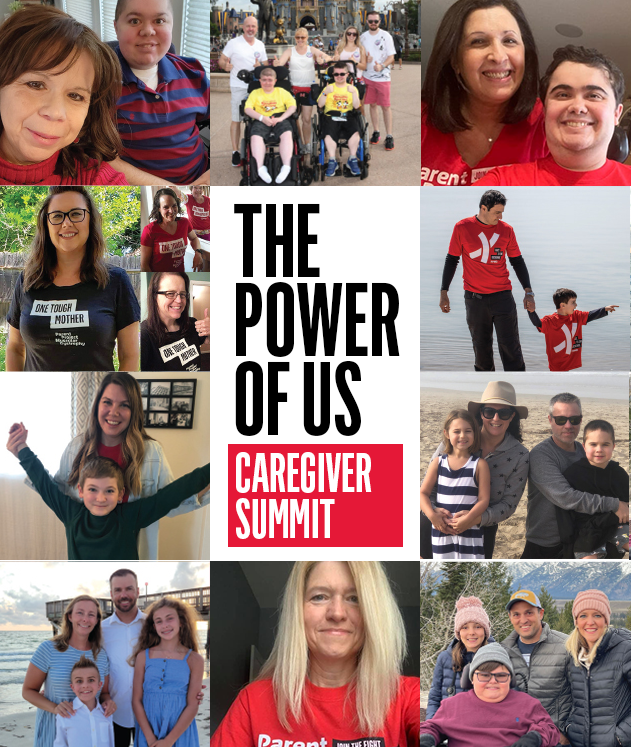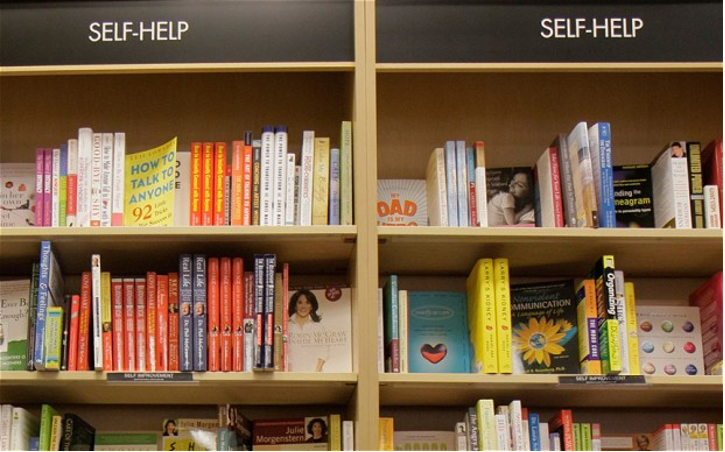
PPMD Brings Caregivers Together to Kick off The Power of Us Summit Series
Today PPMD is excited to convene the first meeting in The Power of Us Summit Series, our series of mental wellness retreats bringing together members of the community to discuss topics related to mental health and family relationships, with the goal of developing tools and resources to help us enhance daily life.
With additional meetings planned for the siblings in our community, as well as for teens and adults living with Duchenne/Becker, today’s first meeting in our three-part series is focused on the caregiver experience – the parents, grandparents, and other members of our community who serve as primary caregivers of children and adults living with Duchenne.
Setting the Stage: Exploring the Primary Caregiver Experience
Let’s face it, Duchenne parents, grandparents, and primary caregivers don’t need any additional “how to” articles on identifying mental wellness needs, nor do we need more resources or “tips” — drink more water, get more exercise, get more sleep, take time for ourselves, etc. Deep down, we know what our wellness needs are, but we recognize that there is often a culture of acceptance around parents/primary caregivers that goes a little something like this:
“Well, that is just the way it is, right?”
All of us have different mental health and wellbeing needs, but if each of us had to create a wish list, we all could, easily. The barrier to entry of our own wellness is not that we don’t know what we need, or even what we should need. The barriers are in the emotional and psychological components — things like guilt, time, energy, control, resources, health, worth and value.
As caregivers, many of us are terrible at incorporating wellness practices – physical, mental, and emotional – into our intense and busy Duchenne family lives. Taking a look at everything that we need to manage, juggle, and deal with on a daily basis, it should come as no surprise that we often prioritize ourselves last or not at all.

We grapple with these things. But we don’t talk about them, at least not in any meaningful way. Partly, because our mindset is, “I should just figure out how to stop feeling guilty” or “I should just be better at using my time and just MAKE time.”
In turn, we then have TWO problems to solve and be “perfect” at:
- Getting rid of guilt
- Incorporating care of ourselves
This often feels way too hard and we end up doing neither one of those things, thinking we will be “okay-ish”. If we do happen to admit our internal thoughts to a friend, sharing how “I feel really guilty about leaving for the afternoon,” they may say, “Yeah. That’s hard. I get it.” But that doesn’t stop the story from running through your mind; “I feel bad about doing this, I don’t deserve it, they need me, questioning how can I take all this time when I have so much to do…” When we internalize these feelings, we tell ourselves stories with a negative narrative and let them run amok in our heads alone.
The Goal of the PPMD’s Caregiver Summit
PPMD’s Power of Us Caregiver Summit intends to get these thoughts out in the open so we can acknowledge: “You will feel guilty. It’s okay to feel guilty. But, the guilt doesn’t have to win. The guilt doesn’t have to have all the power. The guilt doesn’t have to run your life.”
It is possible to feel LESS of the guilt. Just less, that’s all. That’s more than enough. Then maybe the new story starts to have more sway: “It’s okay that I feel guilty about taking time to do this, BUT I really need it, and it will make me feel better, and I’ll be much happier and so will my family in the long run…”
We are hopeful to peel back some of these layers and talk about how to give ourselves grace as caregivers and space to open up more about these barriers to wellness. Let’s normalize guilt in some way so that when it does crop up, it has less power over our minds and empowers us to make time for our own wellness practices.
Instead of saying, “this is just the way it is,” what if we were able to support each other in bettering our mental health and wellbeing? In doing so, reframe the internal narrative.
It is in this reframing we begin to overcome “the things that get in the way” of us having a healthy physical, mental, and emotional wellbeing. We are able to take whatever action is needed to take care of ourselves and, by extension, our loved ones with Duchenne. That is where the work is needed; understanding what these barriers to wellness really are — how we feed them internally — and then how we can starve them a bit, so they hold less power over us.
The Power of Us is stronger than any of us alone
By starting this conversation, first with our caregivers and then with our siblings and teens/adults living with Duchenne and Becker, we hope to develop tools and resources that help enhance our Duchenne family lives. We will report back with learnings from this meeting, and hope that additional members of our community will join us for our upcoming teens/adults and siblings meetings, so we can continue to drive forward resources that will benefit every single member of our community.
Upcoming Meetings
Register today to participate and join us for one of the upcoming sessions.
- Siblings (May 21, 2022; Pittsburgh, PA)
- Teens and Adults with Duchenne/Becker (June 23-26, 2022; Scottsdale, AZ & Virtual) – Part of the Teen & Adult Track at PPMD’s 2022 Annual Conference
Sibling Summit
This meeting is for the siblings in our community ages 16 and up, and will focus on topics specific to their experiences. The agenda will feature guided sessions with mental wellness professionals as well as first hand narratives from adult siblings. Topics will include:
- Wellness tools & resources
- Family dynamics
- Managing roles and expectations
- Identifying anxiety and confronting guilt
Following the meeting, we will have a chaperoned social outing in Pittsburgh where our siblings can bond and have some fun!
Register Now: Siblings >Teens and ADULTS with Duchenne/ Becker
This meeting is for the participants with Duchenne or Becker muscular dystrophy, ages 14 and up (available both in-person and virtually). These private sessions are planned and hosted by the PPMD Adult Advisory Committee (PAAC). Topics will include mental health and family relationships, with the goal of developing tools and resources to help us enhance daily life.
Register Now: Teens & Adults >


 by: Pat Furlong
by: Pat Furlong

